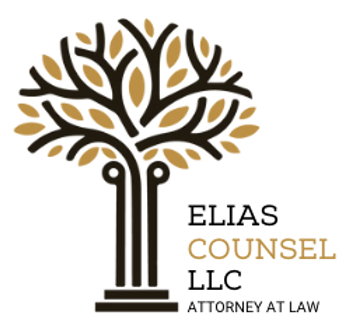Power of Attorney in New Jersey
Plan for the "What Ifs"-Before They Happen
A Power of Attorney gives someone you trust the ability to make decisions for you if you ever become unable to act for yourself. It's not just a document for older adults-it's a smart move for anyone who owns property, has a family, or wants to avoid court delays during a crisis.
At Elias Counsel LLC, we help Monroe Township residents create durable Power of Attorney documents that hold up under New Jersey law and reflect their specific wishes. No legal lectures-just practical guidance to help you plan ahead.
We proudly serve clients throughout Middlesex County and Central Jersey, including Jamesburg, East Brunswick, Old Bridge, and nearby communities.
What to Expect When You Create a Power of Attorney
Here's what the process looks like when you work with our team:
We Explain What It Does (and What It Doesn't)
We'll help you understand exactly what a Power of Attorney covers-from paying bills and managing property to handling legal matters on your behalf. We'll also explain what it doesn't cover and how to structure it for your comfort and protection.
You Choose the Right Person (With Our Help)
This is a big decision. We'll guide you through choosing a trustworthy agent-someone who will act in your best interest if needed-and naming a backup just in case. You stay in full control of who's involved and what powers they have.
We Tailor It to Your Needs
Every Power of Attorney we draft is customized. Want to limit authority to certain actions? Want it to take effect only if you're incapacitated? We'll help you decide what works best for your life and goals-and explain every option in plain English.
You Leave with a Valid, Binding Document
We make sure your Power of Attorney is properly signed, witnessed, and notarized (if needed) to comply with NJ law. You'll leave with a document that will be honored when it counts-not questioned when it's too late.
What Is a Power of Attorney?
A Power of Attorney (POA) is a legal document that gives another person (your "agent") the authority to act on your behalf. This can be for financial, legal, or property-related matters if you're temporarily or permanently unable to do so yourself.
In New Jersey, POAs must meet specific criteria to be valid and durable-that means they stay in effect even if you become incapacitated. Without one, your family may have to go to court to get permission to help you.

Why Having a POA Matters-Even If You're Healthy
Accidents, illness, or unexpected hospitalizations can happen at any age. A POA allows your chosen person-not a judge or distant relative-to handle things like paying bills, accessing bank accounts, or managing property during a crisis.
It also prevents delays and expensive court guardianship proceedings if you ever become unable to manage your affairs. Think of it as a form of legal backup-a safety net for you and your family.
Types of Power of Attorney in NJ
We help you understand and choose from the following types:
General POA
Broad authority to manage finances, property, and legal affairs
Limited POA
For a specific purpose or time period (e.g., selling property while traveling)
Durable POA
Stays in effect even if you become incapacitated (recommended for most)
Springing POA
Learn more about ProbateOnly takes effect if a specific event happens (e.g., medical incapacitation)
Each type has its pros and cons-we'll walk you through what fits your needs best.
FAQs About Power of Attorney in New Jersey
Do I need a lawyer to create a POA?
Yes, if you want one that's legally valid and tailored to your needs. Online forms often leave out key protections or aren't enforceable in New Jersey. We'll draft it right the first time.
Who should I name as my agent?
Choose someone responsible, honest, and available-often a spouse, adult child, or close friend. You can also name co-agents or successors. We'll help you weigh the options.
Can I revoke or change my POA?
Absolutely. As long as you're mentally competent, you can update or cancel your Power of Attorney at any time. We'll help you make changes if your situation changes.
Is a POA different from a healthcare directive?
Learn more about Healthcare DirectivesYes. A POA usually covers financial/legal matters. A healthcare directive appoints someone to make medical decisions.
What if I don't have a POA and I become incapacitated?
Learn more about Estate PlanningYour loved ones may have to go through court to be appointed as your legal guardian-a process that's time-consuming, costly, and stressful. A POA avoids that completely.
